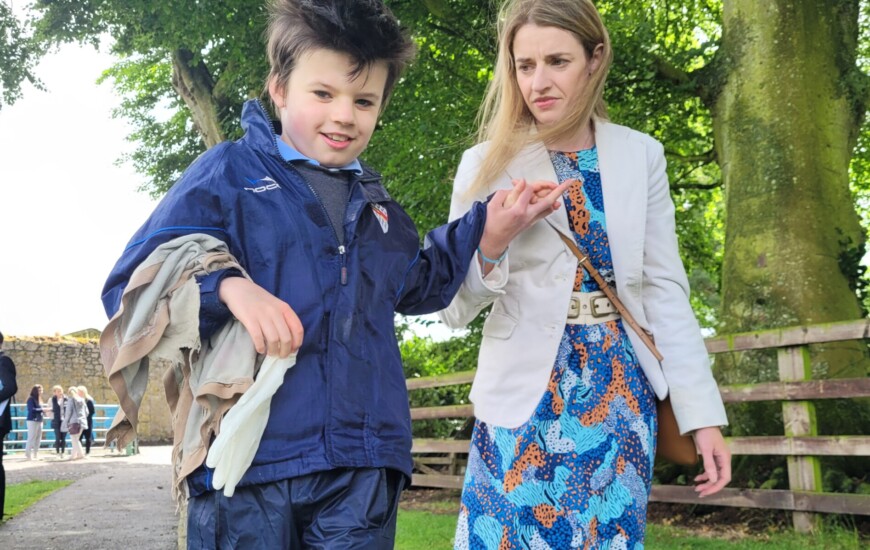Charity says family carers ‘must be a priority’ in Budget 2023
Padraig Conlon 30 Aug 2022
Family Carers Ireland says it is calling on the Government to demonstrate its commitment to Ireland’s 500,000+ carers in the lead-up to Budget 2023.
The charity also said the support of family carers ‘needs to be reflected’ in the upcoming Budget, both in policy and financial terms.
Catherine Cox, Head of Communications and Policy, Family Carers Ireland:
“There’s a lot at stake in Budget 2023, a lot of kites are being flown, and there are a lot of demands.
“Family carers are naturally very concerned that they will once again be forgotten in the upcoming Budget.
“They worry every year, and rightly so, because family carers are usually forgotten.
“They’re the hidden front line or invisible army of workers that care “out of love”, so the Government knows that they’re not going to down tools in the morning.
“They’re not going to give up or go on strike.
“As a result, they’re ignored and that is the harsh and cruel reality, even though they save our state €20 billion annually.
“In previous years, we’ve heard kind words and noble statements from Government but that now needs to be put into action.
“What we are calling for this year is full recognition for the work that family carers do.
“We need to see the Carers Allowance means test abolished. Any family carer who has given up work, or who is providing fulltime care for a loved one, should be properly compensated and supported.
“Thousands of family carers are at breaking point so the usual €5 per week Budget increase is just not going to cut it.
“The expectation that family carers can provide 24/7 care for just €224 per week is simply indefensible, especially given the fact that only one in four carers receives the full rate.”
Mother of three, Noelle Darmody from Tipperary cares for her 2 nonverbal sons with autism and intellectual difficulties agreed.
“As a family carer, I can testify to the fact that we are still being ignored and left behind.
“When I became a carer, I went from an income of €700 per week to the basic carer’s payment, which essentially forced us into near poverty.
“I don’t have the option of working 18.5 hours due to my sons’ complex needs and the fact that they require attention 24 hours a day, seven days a week.
“It’s a worry, we’re not in debt at the moment, but there’s always that worry that when prices go up, we could find ourselves unable to pay the bills.
“The cost of food is going up all the time. Soaring fuel and electricity prices have brought a new urgency to the issue.
“It’s become challenging to provide my sons with the very few supports we do have that help, like charging our son’s speech device which is his only way of communicating.
“We also drive over 500kms a week, the cost of this is between €60 to €70.
“This is a cost directly connected to my sons’ disability, that most parents don’t have, and is a consequence of being a carer.”
“The Government must undertake an urgent review of Carer’s Allowance which should result in abolition of the means-test and payment for work done based on needs.
“Pending this review, the weekly rate should increase to a minimum of €325 per week.
“We are also calling on the Government to address the gross inadequacy of children’s disability services by extending the National Treatment Purchase Fund to include psychology, occupational therapy, speech and language therapy and physiotherapy; with thousands of children on waiting lists across the country for these vital supports. Cost of living pressures are most acute for our country’s family carers, and they simply can’t continue to plug the gap in our health service without better and on-going access to supports, therapies and early interventions. Denying children early intervention and therapies is denying them the right to develop to their full potential.”
Noelle knows firsthand the difference early intervention makes: “We were able to get early intervention for our younger son John and access the supports and therapies he required early on, which has made a massive difference in his ability to integrate into different social settings like school. Unfortunately, our older boy Neil did not get the same support when he was young and continues to struggle as a result.”
Calling on the government, Ms Cox said: “We are asking for family carers’ needs to be placed at the centre of policy consideration. We have outlined initiatives that can be built upon for long-term reforms and real sustainable change that will ultimately benefit individuals, families, communities, and Government. We stand ready to continue to work with the Government to build a better future for all family carers by recognising and investing in them.”











